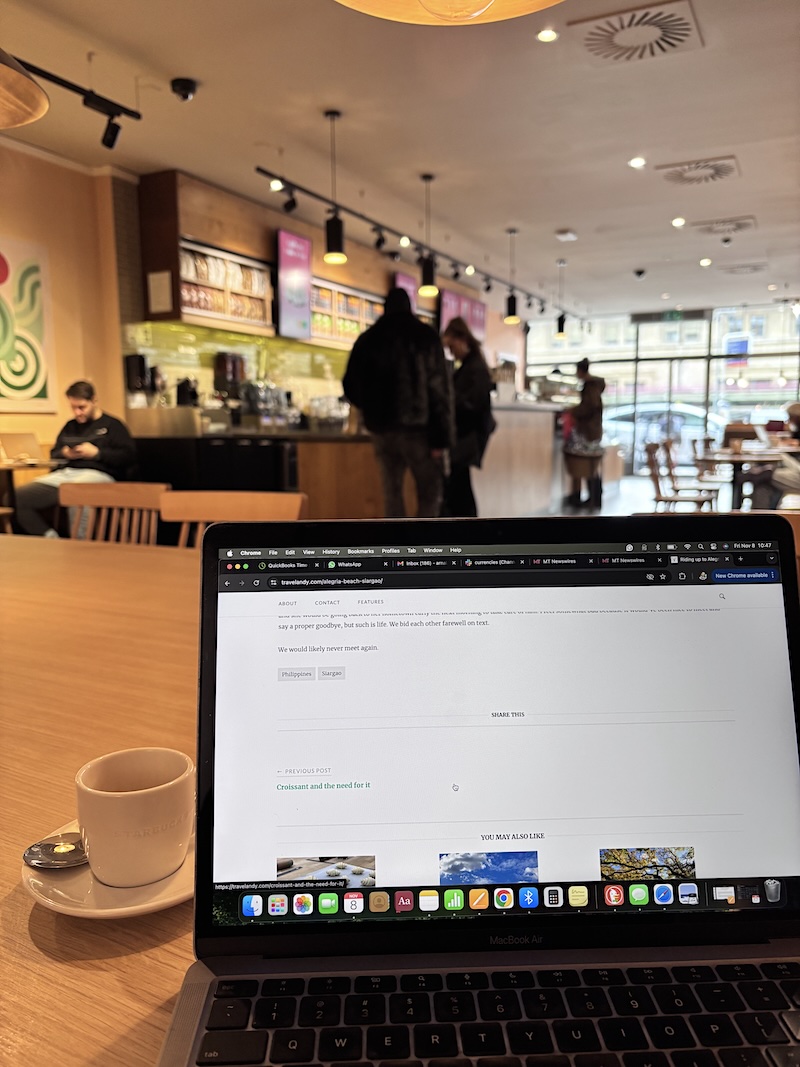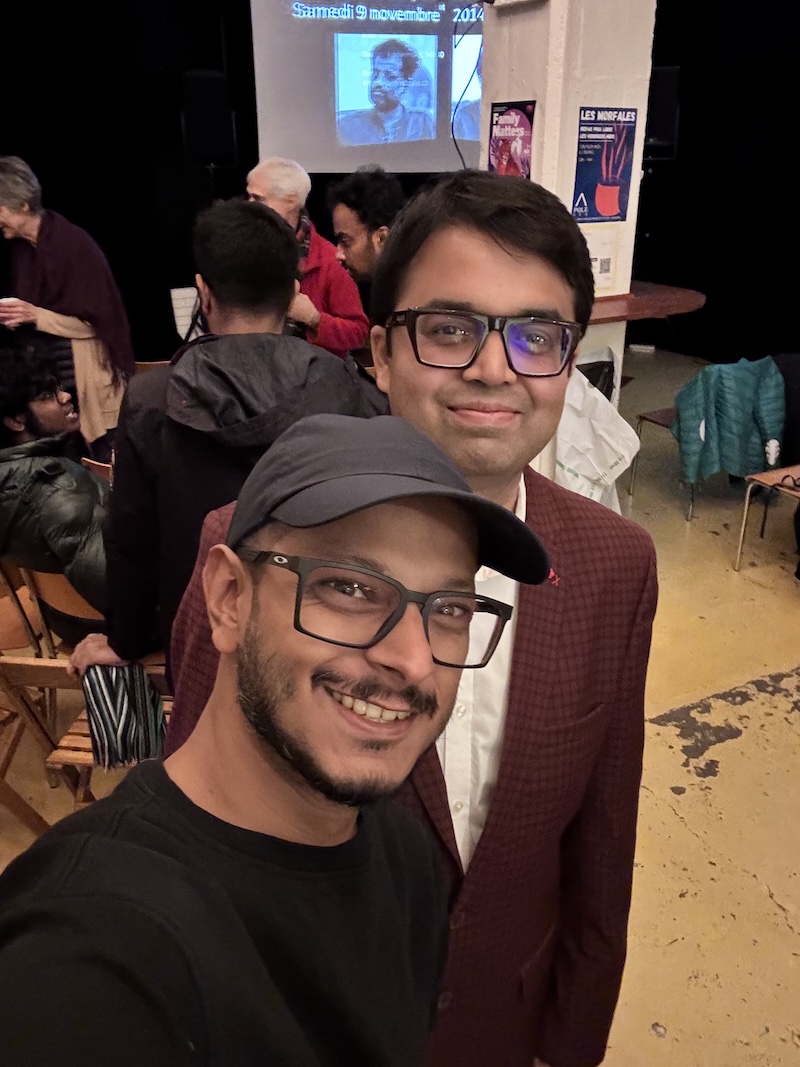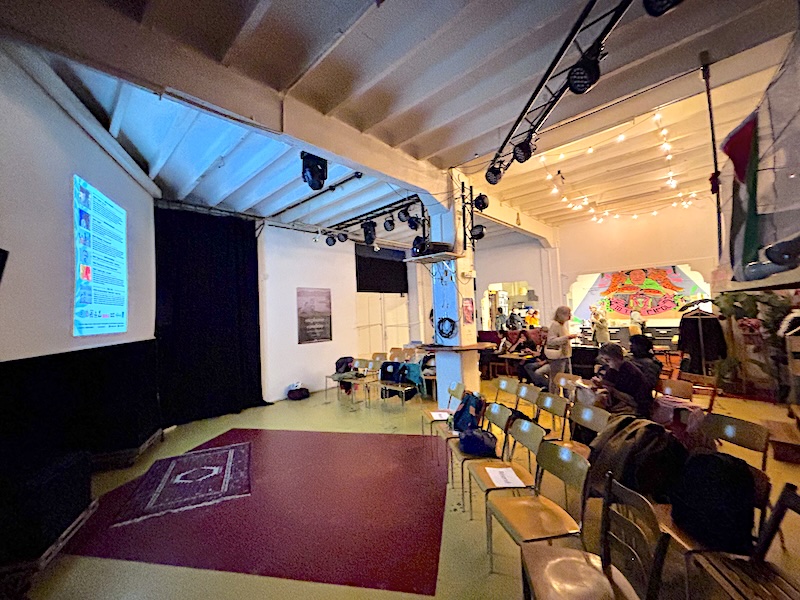You realise the power of cinema when you hear R.D. Burman’s Mehbooba Mehbooba from Sholay play at a Starbucks in Lausanne, Switzerland.
About a month-and-a-half ago, I had bumped into Tathagata after many years at the visa application centre. A filmmaker, he was visiting Lausanne to showcase his film, ‘If’, and to give a series of lectures on films at the university there. My destination, on the other hand, was Lucerne, or Luzern, as the locals call it.
It takes around an hour and a half by train to go from one L to the other, and I promised him that I was going to make an effort to go to his film screening.
On screening day, I reached Lausanne early and went into a Starbucks next to the train station to work. I looked up from my laptop towards the speaker and smiled when I realised Pancham’s hit was part of the playlist, standing its ground amid English and French chartbusters.
On my direct train from Lucerne to Lausanne, it was fun to see how on-board audio announcements and the language in which the ticket checkers spoke changed from Swiss-German to French from Bern.
If you’re planning to visit Europe and are looking to move around fairly regularly during your stay, consider a train pass. Depending on your itinerary, you can buy either a one-country pass or a global pass, which allows you to hop on and off trains in 33 countries for a specific number of days.
I was in Europe for three months this time and I’d gotten myself a three-month “Global Pass”. For 717 euros, practically all my travel became free. The actual pass costs more, but I’d bought it when some kind of promotional offer was on. I only had to pay a small reservation fee when travelling on routes that required a reservation, or when I wanted to take a faster train. But, I was covered for the most part and the quality and elasticity of my travel experience certainly got better.
But I digress.

This was the first time I worked continuously for eight hours at a Starbucks. It went surprisingly smoothly. Midway through the day, they requested me to move to a different table because they had to do something there, and gave me a free coffee for my trouble. And I discovered a wonderful vegan pulled sandwich.
At the end of my work, I walked up the hilly town to the venue where Tathagata’s film was to be screened. The screening, held as part of a South Asian film festival organized by the University of Lausanne, took place on the ground floor of a building in the city center.
Four Indian films were being screened at the venue — not all on the same day. While Tathagata had come with his film, ‘If’, the Malayalam film director Jeo Baby, had come with his film, ‘Kaathal, The Core’. Jeo Baby, you may remember, is the maker of the hugely popular and critically acclaimed ‘The Great Indian Kitchen’. Kiran Rao’s ‘Lapataa Ladies’ was also part of the festival’s lineup. I forget which one the fourth was.
Jeo Baby made an appearance completely disheveled with unkempt hair, in sweatpants and chappals, and carrying a beer bottle. I wondered how he managed with chappals in this freezing mid-November evening. He spoke politely to everyone who went up to him to speak, and thanked them when they appreciated his work. Most fans spoke about The Great Indian Kitchen.
Tathagata told me they expected some 80 people at the screening of his film. As it happened, more people turned out, and several of them ended up watching the movie standing and gave him an ovation when it ended.
The director spoke about his film and his process and took a few questions from the audience. Afterwards, he and I went out for dinner.
I don’t know too many people in the film industry, but of the few I know, I know no one more passionate about movies than Tathagata. He lives and breathes movies. I asked him how he made money from his filmmaking, and he said he hardly did. He has a regular job that pays his bills and funds his passion. He reminded me of a childhood friend of mine, Aviman, who identifies as a music director (his songs get millions of views on YouTube) and will tell you so if you ask him. But his everyday job is being a cop, and unlike most of his colleagues, he never brandishes that identity.
I met Tathagata through a common friend some twelve or thirteen years ago. I was considering making a travel show and the common friend had directed me to him. The show never worked out, but we kept in touch.
We sat at a small sushi place near Lausanne train station and spoke about life and work. He said he was greatful to cinema for giving him the opportunity to travel to various countries with his films and he valued this as much as money he might have made from filmmaking.
Since I have known him for more than a decade, I know that he has not had a smooth sailing. His father, who had greatly encouraged him in his passion for cinema, died unexpectedly when he was studying at Vancouver Film School for a year. Tathagata did not have the money to return to India to say a final goodbye to his father. “I just sat in my room and cried,” I remember him telling me later. So, it makes me happy to see the young director being able to follow his passion and literally going places, thanks to his films.

I headed to the station after dinner while my friend headed back to the city. We didn’t know when we would meet next, but thanks to Tathagata, this day of mine, thousands of miles from home, in a strange city, turned out a good one.
Cheers to cinema!




